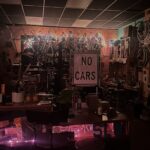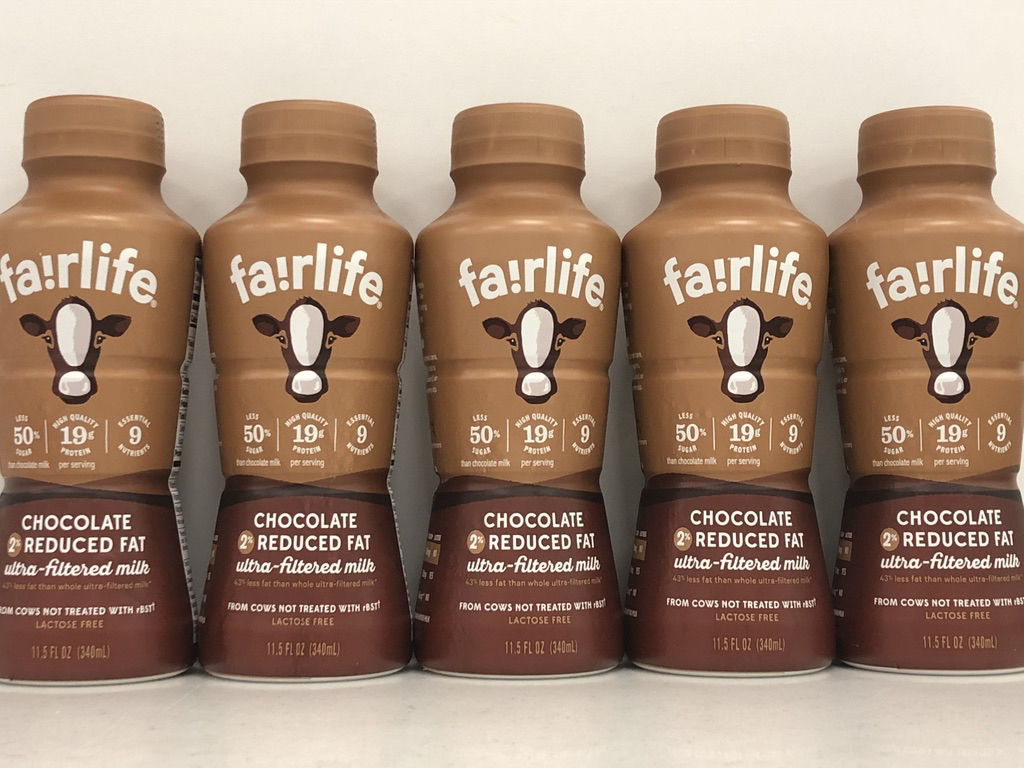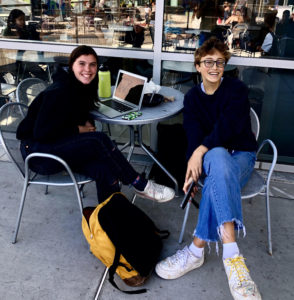On the first day of school, students waiting in line for lunch, expecting to purchase their usual chocolate milk, were surprised to see that in the wake of the controversy surrounding Fair Oaks Farms, Fairlife products had been removed from the beverage refrigerators of their Ann Maisel Cafe.
Fairlife is an ultra-filtered, lactose-free milk brand that advertises its high protein and low sugar content. Last year, an entire fridge in the cafeteria (colloquially called the Caf) was filled with Fairlife. The brand’s chocolate milk was especially popular among Lick-Wilmerding students.
“I got it once a day,” said Tatiana Robb ’22, regarding her Fairlife purchases last year. “Or once every two days. I got a lot of chocolate milk. I’m a big chocolate milk fan.”
However, Fairlife milk is sourced from farms including Fair Oaks Farms, which is under scrutiny for its animal agriculture practices.
In June 2019, Animal Recovery Mission (ARM), a direct-action animal rights group, went undercover and released a video of the abuse of cows at Fair Oaks Farms.
Touted as “the #1 agritourism destination in the Midwest” on their website, Fair Oaks Farms describes visits to the farm as fun, family-friendly opportunities to learning about agriculture.
Undercover ARM investigators proved otherwise. Their footage revealed calves shoved into tiny cages, kicked and stepped on as workers coerced the calves to drink milk.
“Wanting their mother’s udder and not the artificial bottle, frustrated workers beat and force feed the calves to death,” the voiceover in the video said.
Both Fair Oaks Farms and Fairlife were founded by veterinarian Mike McCloskey, who issued a statement apologizing for Fair Oaks Farms’ unethical practices. Fairlife was criticized for the inhumane treatment of their cows. Activists protested outside of Fairlife’s headquarters in Chicago. Because of all the negative press Fairlife received, several retailers removed Fairlife from their stores. One of the vendors that no longer sells Fairlife is Lick-Wilmerding’s Ann Maisel Cafe.
Kathleen Fazio, Lick’s director of food services, is responsible for ordering all of the products for sale in the Caf, including drinks. She was aware of the controversy surrounding Fairlife.
“I heard about it immediately and I talked to our distributor,” Fazio said. “I told him I couldn’t order it anymore.”
The distributor for Fairlife is a representative from Odwalla, who noted the decrease of sales from Fairlife. Both Fairlife and Odwalla are owned by the Coca Cola company.
Last year, in addition to the sales of other drinks, the Caf sold around 150 bottles of Fairlife a week.
“I liked how it tasted more. I thought it had a better chocolate taste,” said Evan Aubry ’22 about the brand. He once advocated for Fairlife but now supports Horizon chocolate milk.
Most students have not opted to switch to other drinks in the Caf in Fairlife’s absence. Without Fairlife, drink sales in the Caf have plummeted, and the loss of Fairlife has coincided with the decrease of sales of all drinks. At Lick, drinks are not sold to profit, rather they are sold in reponse to student demand. Therefore, the caf has not pushed students to buy drinks to replace the sales of Fairlife.
Although Fairlife is no longer sold, several of the remaining drinks in the Caf are entangled in the Fairlife controversy. Fairlife’s parent company, Coca Cola, also owns Simply Orange and Odwalla. Purchasing any of these drinks is supporting the same corporation that is responsible for the animal abuse at Fair Oaks Farms.
Even Suja, a local organic kombucha business headquartered in Santa Cruz, is now distributed by Coca Cola. Smaller companies need giant corporations to distribute their products in order to stay in business, so companies like Suja have partnered with Coca Cola in order to ship their beverages.
The middle fridge in the Caf is not associated with Coca Cola, but all of those drinks are also owned by huge corporations. Izze, which sells cans of sparkling juice, is another drink sold in the Caf. Some students feel less environmental guilt in supporting Izze because the drinks come in aluminum cans instead of plastic bottles. However, production of those beverages are also not without consequence: Pepsico, which owns Izze, has been responsible for deforestation in producing palm oil.
Because these large corporations control the beverage industry, these companies’ products are difficult to avoid. After Odwalla was bought by Coca Cola, the Caf considered getting rid of Odwalla’s products, but ultimately decided against it because of the lack of alternative drinks that were more ethically sourced.
The Caf is thinking about reintroducing Fairlife, as long as Fair Oaks Farms is making progress with their animal welfare. Recently, Fair Oaks Farms fired the employees caught abusing cows in ARM’s video and hired animal welfare experts. Supervisors are monitoring calves to prevent future abuse. But calves are still housed in tiny cages, and employees have not yet been informed on how to rectify the farm’s unfair practices.
Until these problems have been resolved, the Caf will not be selling Fairlife.






